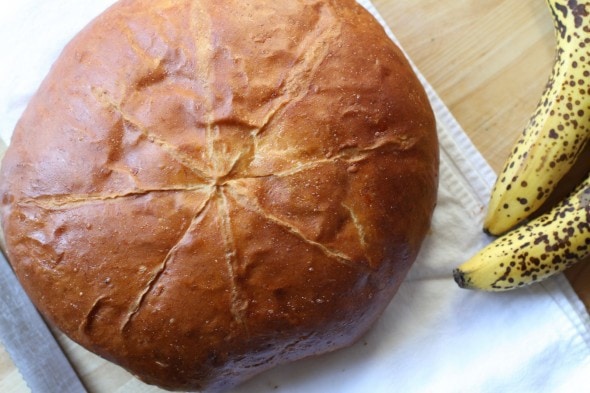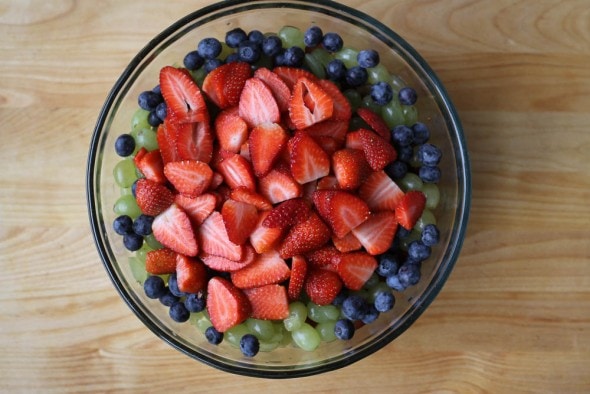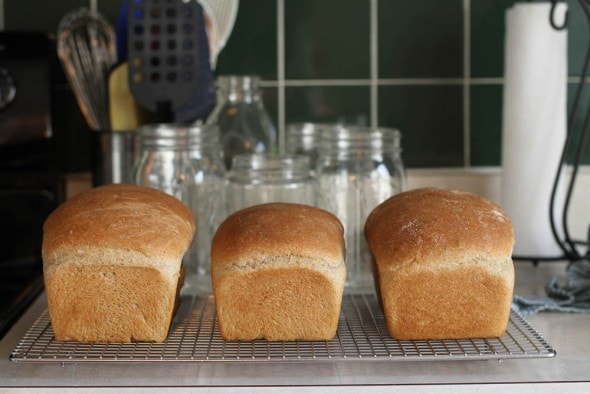Every other Monday, I answer reader questions. Want me to answer one of your questions? Email me and put “Q&A” in the subject line.
Two things before we get to questions:
Free Pizza
By the way, the Penny Hoarder emailed me this weekend to let me know that you can do some mystery shopping and get a free pizza plus $5 for reviewing Papa John’s. I have not personally tried out this company, but I know some of you are interested in mystery shopping/doing surveys for moola. Let me know if it works out for you!
DIY Bundle Notecards
If you bought the Ultimate DIY Bundle and you haven’t redeemed your $15 Fawnsberg credit yet, I just got word that their six-pack notecards are back in stock. This is definitely the best deal and works almost perfectly with your $15 credit (the sets of six are $16.50). Your bonus offers expire on February 26th, so don’t forget to redeem them now!
Alllrighty….on to some questions.
Hi Frugal Girl!
I have a dilemma I am hoping you can share some wisdom on. When I came to your blog I was not a Christian, nor did I have any issues eating gluten or sugar – especially when said items are organic. However, fast forward these 5 or 6 years, and I am Christian and now I have been examining this gluten free idea. I have had a lot of headaches and other things that people keep telling me would be resolved by nixing gluten in my life.

Now, I have read lots of things – and I mean LOTS – about gluten free, not being gluten free, what it implies for Christians in the Bible about wheat…. I honestly don’t know what to think. I am coming to you because you love breads, and you use sugar and dairy and all of those other things that food purists say never to eat…and yet you said that your girls had their first ever antibiotic this year! I was floored!! I have put a lot of stock in eating “perfectly” and we are sick fairly often.
So, to sum it all up – I was wondering if you had some insight on this gluten free thing when it comes to the Bible and wheat and just the whole mess.
Thanks!
Hmm. Well, I think the decision about whether or not to eat gluten and sugar is more a matter of what your own body can handle than it is about what the Bible says. I don’t think the Bible either prescribes or prohibits gluten or sugar, and so it’s a matter of applying wisdom.
The Bible does say we should take care of our bodies, but everyone’s body has slightly different needs, so I don’t think you can find a blanket solution for every person.

I say if you want to try eating gluten-free to see if it helps your headaches, then go for it! If going gluten-free has no positive effects in your life, then go back to eating gluten with a clear conscience.
It is true that my girls had never had antibiotics until December, but that’s not necessarily due to what we eat or don’t eat. I mean, I try to feed my family reasonably well, and we don’t eat much in the way of processed foods, but some of my kids’ healthiness could just be due to genetics.
I do think eating healthfully is important (I’m not gonna start keeping Ho-Ho’s in my cabinet!), but the fact of the matter is that we live in a broken world with sickness and disease and sometimes we are going to get sick no matter how hard we try to eat well.

So.
I buy some local food, I buy some organic food, I try to make sure we eat a lot of produce, I make most of our food at home, and it’s not a sugar free-for-all here (we eat sugar in moderation).
But gluten and dairy do not seem to negatively affect our health, so I’ve not felt it necessary to cut those out.
Basically, I think you should just try to figure out what works best for your family’s bodies and be confident in that.
In other words, don’t be discouraged by the fact that other people eat differently, and don’t assume that you’re failing at eating healthfully just because you get sick sometimes.
In my country (Germany), we do not have homeschooling, so this has always been fascinating to me. I wonder, you do look over your children’s work, when they are finished and discuss it with them, answer questions and whatever comes up?
Do you give your children the topics they are to do (I mean the two older kids/teens) on the end of schooltime or in the morning? Some you will, like repeating topics, that proved difficult, but in general?
Do you say: tomorrow you look into Algorithms for math, photosynthesis for science, tenses for Grammar? Or do you tell them in the morning, before they start?
Oh, another question, do you do history? And is it world history or “just” American history?
You’ve got a lot of questions there, so I’ll just answer them in little separate sections below.

First, yes, every day I look over my children’s independent work, mark what’s wrong, and they correct it (sometimes with me if they can’t figure out how to fix it themselves).
I have teacher’s manuals and answer keys to make this process faster and easier, though for the younger two, when I correct things like grammar and vocabulary, I don’t usually need an answer key.
I do some subjects with my younger two girls (history and botany), so since I’m sitting right with them as we do those studies, there’s no need for me to look over and correct their work.
_______________

Rather than assigning specific pages each day for each subject for each kid, we kind of figure out at the beginning of the year exactly how much work we need to do in each subject in order to finish by the time summer arrives. So, for example, they do one lesson of math per day, two pages of grammar, and so on.
This means I don’t have to give out daily assignments…rather, the kids all know how much work they’ll do each day.
_______________
We do indeed do history, and not just American history. America is such a young nation by world standards, we’d be missing out on a lot if we only covered our own history. Plus, when we do get to American history, it’s important to see our own country’s history in the context of what else was happening in the world at the time.
I hope that helps to give you a better idea of how things work as we do school at home!
________________________________________________
Whoa. I’m over 1100 words right now, which means I’d probably better wrap up this Q&A post and save some other questions for next time.
So, it’s your turn to be wordy now!
What are you thoughts on gluten/dairy? Evil for all? Evil for some?
Does your homeschool operate like mine? (I’m sure my German reader would love to hear from a bunch of you!)

Pam
Sunday 22nd of February 2015
I was advised by my doctor NOT to eat gluten free unless told to by a doctor. Gluten free foods are frequently higher and calories and lacking in nutrients. As far as them giving you more energy etc. it's nothing but a myth. Do not eat gluten free if you don't have to and do not feed a gluten free diet to your children.
Kristen
Monday 23rd of February 2015
I don't know that this is necessarily true. There are an awful lot of gluten-containing foods that are high in calories and low in nutrients (doughnuts, cake, cookies, etc.) while many gluten-free foods are low in calories and high in nutrients (produce, for example).
I think one could eat a healthy diet either with or without gluten, but an advantage of going gluten-free is that it immediately takes a lot of junk food off the table.
Beth
Thursday 19th of February 2015
Did we / can we get a citation on what the Bible says about wheat? So we know what "rules" we're talking about? Thanks.
Kristen
Thursday 19th of February 2015
I'm thinking she may just be referring to the casual references in the Bible to people eating wheat. At least, that's my assumption.
EngineerMom
Tuesday 17th of February 2015
Have you looked at Crash Course on YouTube now that you're getting into high school territory?
I was especially thinking about US history in the context of world history, and how they go about covering that in their US History course.
Emily
Tuesday 17th of February 2015
I'd like to mention that not all gluten intolerances can be tested. Not only are there gut/intestinal gluten intolerances that act just like celiac (and yet the person can test negative, like a young girl I know), but some people have neurological reactions, like my daughter has. These tests don't necessarily pick up on gluten as the culprit, yet elimination of gluten has worked wonders for her. We never did eat a lot of junk or processed food, but we did eat some, and there is a lot of gluten free (both intentional and coincidental) junk food out there.
Janknitz
Tuesday 17th of February 2015
I made the choice to go grain free (not just gluten free) 3 years ago and I have had enormous health benefits from doing so. For me, it was absolutely the right choice. And while rebound can be uncomfortable (e.g. when I inadvertently ingest grains), I was VERY sick before eliminating grains and have been very well since doing so. I never want to feel that bad again. The rebound is a good reminder of how great I feel without grains and how terrible with them.
I want to comment on the poster who said it is "expensive" to go gluten free. It's only expensive if you find you need to buy or make substitutes for bread, pasta, and other things made with flour in your diet. Gluten-Free products are very expensive, even if you buy ingredients (e.g. almond, tapioca and rice flours, arrowroot in large quantities, xanthum gum, etc.) to make things from scratch.
I simply don't eat fake bread, pasta, or pastries. Instead of a sandwich, I take a reusable non-plastic container and a fork with things that would have been sandwich fillings for my lunch. I put sauces over steamed zucchini or shredded cabbage, I puree vegetables (a good way to use up scraps) to use in place of breadcrumbs in meatballs or meatloaf, finely chopped cauliflower stands in for rice, eggplant is a great base for tomato sauce and cheese dishes.
While I saved money by making all of the family breads in the years before going grain free, it is far less expensive not to buy bread ingredients or loaves of bread, pasta, cereal, cookies, cakes, and snacky foods. We put the money we save into better quality vegetables, meat and eggs--pastured and organic--and we still come out ahead.
Among other things, grains were causing me to crave foods and be hungry constantly. I have a much smaller appetite without them. I often skip breakfast because I'm not hungry, I eat hearty meals and almost never snack now. In my grain eating days I had to eat nearly every 2 hours because of blood sugar issues which disappeared when I eliminated grains from my diet.
A person with celiac has tighter constraints on where they can eat because ANY gluten exposure can be harmful. I can see how that might become socially isolating because there are so many places a person with celiac can't eat--including other people's homes, the church, etc. That must be very hard.
But that's not the case for every grain-free or gluten-free person. While I prefer to eat at home for economic reasons and because I know what goes into the food I eat at home, I am not socially isolated at all. You can get a salad almost anywhere, and plain meat and veggies many places. I check restaurant menus ahead of time to find what I can eat, or I will call a restaurant to make sure that they will have something for me. I attend a monthly professional meeting with a catered lunch, but that lunch is inevitably pasta or sandwiches. I take the filling out of the sandwich and eat what salad is available, or wait until after the meeting to eat my pre-packed lunch. I always have "emergency rations" for occasions like that.
I take food I know I can eat to potlucks, and I'll eat before a social event if I think they won't serve food I can have. I can always walk around with something on my plate as though I plan to eat it. When we are invited for a meal at someone's home I explain that I don't eat grains and offer to bring a dish to share that compliments the hostess' menu.
I'm not tempted by